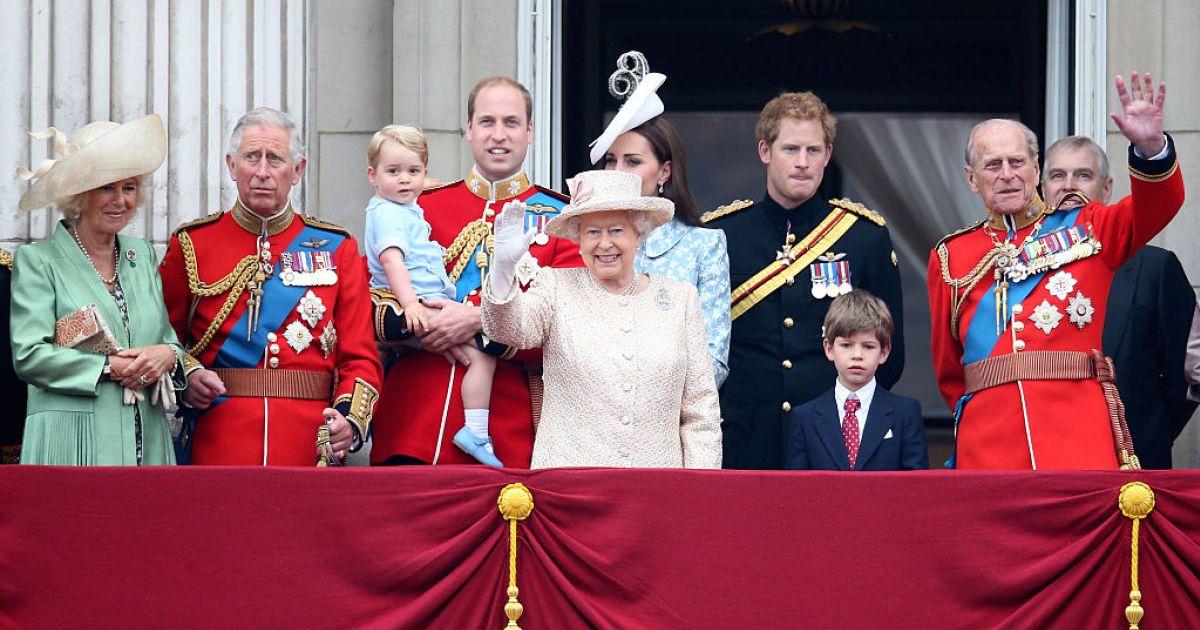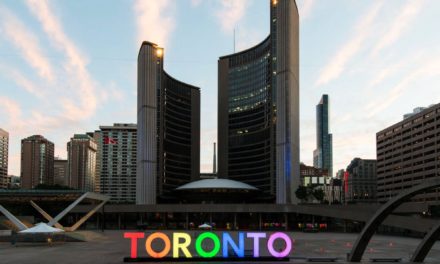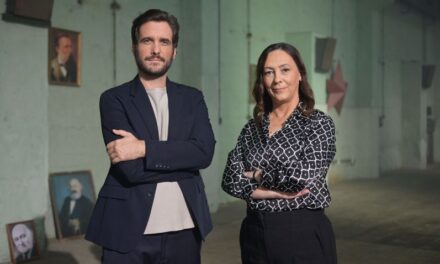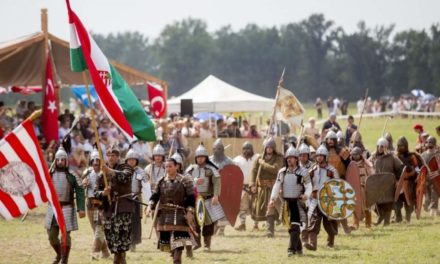What is the point of monarchies? What do kings express that presidents do not?
This is how the people of our country and many other countries mourn World War II. Queen Elizabeth of Britain, as if we were all members of the British Commonwealth and she was our head of state - our crowned head.
Of course, the British monarch is an internationally known celebrity in modern times, as is his entire family. But we can still ask the question:
I wonder why the death of the ruler of another country affects us so much?
Another such powerful ruling family in the Western world is the Spanish one - did Károly I. János, who had already abdicated in favor of his son, and Károly VI. Are we so interested in Philip, not to mention the Dutch, Belgian, Swedish or Norwegian monarch?
Part of the attention is probably for the international celebrity. But II. Elizabeth and other monarchs are at the center of this attention not just because they are influential and well-known personalities.
It is as if we have a more sentimental (or possibly hostile) attitude towards rulers than towards presidents of the republic. The same attention can be observed towards the (residual) aristocracy. We abolished arms and orders, titles of nobility, and after that we are romantically attracted to the remaining representatives of the order. I wonder why? I have a few tips.
Monarchies are surrounded by an atmosphere that other politicians are not.
The fact that they were not elected, but inherit the throne, through their family shows a continuity lost in the mists of the past - not in an abstract way, but very concretely, through persons and their recognizable faces, paintings of which faces hang in the royal palaces (photographs of some of them also). However, there is nothing more experiential than the continuity displayed by the family and its members. The Japanese imperial family, for example, is more than a thousand years old, and its roots go straight back to the world of Japanese folktales.
When we are not nostalgic, we usually talk about the genre of monarchy from a utilitarian and democratic point of view. In addition to the ideological issues, our problem with it is that it does not fit into the democratic-popular-sovereign logic from the point of view that the monarchy is typically not elected. Monarchy embodies an immovable elite that cannot be replaced (or, for the most part, can only be replaced by force). And what if a child who is unsuitable in terms of personality and qualities inherits the throne? Comprehensible suggestions.
Therefore, if the monarchy remained somewhere in the Western world, it has now been emptied and turned into a protocol institution. Of course, its symbolic power can remain.
At the same time, whoever searches for the meaning of monarchy in such a democratic and utilitarian way misses the point and is looking in the wrong place. Monarchy is not a mechanical, but an expression of an organic social image, where the ruling family is the head. But we don't usually change heads. also customary to point out that the rulers can think long-term and embody the unity of the nation - or their people - precisely because they were not elected, they are not limited by daily power struggles and elections every few years. The heirs to the throne grow up in the ruler's environment and court, thereby learning about politics and ruling from a young age. This means a lot of experience, more than that of politicians who have already mastered all this with an adult head.
But let's make it clear:
conservative thinking is not necessarily monarchist.
Since he emphasizes the imperfection of man, he believes that there is no perfect form of government either. Many arrangements can be more or less good, and some are downright bad (such as totalitarian dictatorships).
At the same time, it is understandable that conservatives are attracted to the form of government that their predecessors defended - and it also symbolically expresses their image of society, their attraction to the imperfect but established order. Regarding the reasons, they often just say: "just", we are used to this, the monarchy is a tradition, it is pointless to open a rational discussion about it.
I wouldn't be such a defeatist. Continuity, the organic image of society, standing above the daily political battles, the symbolic expression of the nation by one person are important. But the essence of the monarchy is elsewhere.
The monarchy is fundamentally a sacred institution. The ruler is a sacred person who mediates between his people and the transcendent.
In the Middle Ages, he was also viewed in this way, the ruler was almost part of the priestly order, the coronation was a sacred act.
However, modernity freed both society and politics from their close entanglement with the sacred and rationalized it by making it utilitarian. That is, he desacralized and disenchanted it. However, as Tamás Molnár pointed out The two faces of power: politics and holiness - politics and holiness have always been intertwined throughout history. The separation (secularization) was brought about by the Enlightenment. Secular logic does not understand or feel the essence of monarchy.
This does not mean that monarchy has no place in the modern world, and we should admit that it does not belong here, anyway. It doesn't hurt if some political public institution, a personified public institution, rather than an impersonal bureaucracy, reminds the postmodern West of the sacred, transcendent dimension on which it depends anyway. There is not only the pro-egalitarian horizontal dimension, but also the vertical one, you can also look upwards. The existence of the ruler and his family is a sign, a warning, and lifts him out of the ordinary into a more exalted and majestic world, even if the dynasty is sometimes surrounded by scandals.
As Otto Habsburg - who II. As Otto in an alternate reality, perhaps II. We could have had a king who reigned even longer than Elizabeth, he wrote in his 1958 book The Social Order of Tomorrow he considered it his noblest task. In the Middle Ages, the legislative power of kings was strongly limited by tradition, the right of local self-determination (ie, medieval monarchies were strongly localist). At the same time, the most important task of the ruler is not judging in current legal disputes, but how
"stand guard over the purpose of the state and natural law.
Above all, the supreme judge is to ensure that all laws are consistent with the basic principles of the state, i.e. with natural law."
Ottó Habsburg adds: the deepest justification of heredity is that the ruler does not derive his legitimacy from a social group (be it a class or a voting base), "but only from the will of God". Ruling "by the grace of God" does not mean that the ruler is superior to others, but expresses "service and duty". Moreover, "it would be a mistake on the part of a king ruling by the grace of God to consider himself an exceptional being." The authority from divine grace "must always remind him that he does not owe his position to his own merits" and "he must prove his fitness by unceasing labor in the service of justice." And he conveys God's grace to his people.
A monarchy is not necessarily better or worse than a republic. By the way, the republic is not necessarily a democratic form of government either, historically republicanism was not an overly democratic phenomenon.
Is wishing and remembering good kings an unjustified nostalgia that makes the past look too beautiful? After all, many kings abused their power, were violent, sought their own gain, subordinated the well-being of their people to dynastic goals. Indeed, power politics and human quality are characteristic of monarchies - just like any other system.
There is no form of government that saves people from their own bad qualities.
But monarchy is still more suitable for expressing the sacred dimension, regardless of human quality; and somehow a more intimate and familiar institution than the institution of the President of the Republic. The meaning of monarchy is not to be found in whether it solves political problems better than other forms of government.
But in its symbolism and sacred dimension. And the republics of the Western world, whether full of hatred or love, but with reverence, observe the remaining monarchies, those that have remained.
Perhaps there is such a reading of the fact that we are so touched by II. Elizabeth's death: we watch the ancient rites that open up the transcendent to us on TV, from the funeral to the coronation, and we watch to see if III. Charles.
Gergely Szilvay / Mandiner
Featured image: Getty Images












